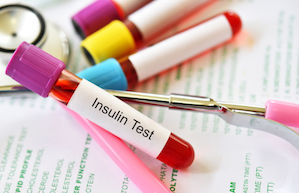One of the less obvious reasons for mental-health challenges are hormonal imbalances, which can be caused by anything from stress to medication, injury or trauma, tumours, or even diet.
So, what exactly is a hormone?
A hormone is a chemical messenger, which is transported through to the organs and tissues of the body via the blood. There are many types of hormones that control bodily functions, some of which include development and growth, metabolism, hunger, thinking and mood, thirst, sexual function and reproduction, and reactions to stress. The body needs to keep in balance (called homeostasis) - and, hormones are the chemicals that make this happen.
Where are hormones made?
Hormones are produced in the endocrine glands in the body, which include the pituitary gland, pineal gland, adrenal glands, pancreas, thymus, thyroid, testes and ovaries.
What signs might indicate that a hormone imbalance is affecting your mental health?
The following are all possible signs of a hormone imbalance:
· Feeling “down in the dumps” or moody
· Battling to concentrate
· Feeling less mentally sharp
· Memory loss
· Irritability
· Confusion
· An inability to focus
What are the key hormones that effect your mental health?
The sugar hormone: Insulin
Insulin regulates the amount of glucose in the blood. When blood sugar levels are too low, you can become tired or lethargic. Too much sugar in the blood can cause poor concentration, ADHD, depression, anxiety and panic, insomnia and in some cases, Alzheimer’s.
When the brain doesn’t have enough energy as a result of low sugar, you can experience brain fog (fuzzy thinking); and become anxious or panicked, depressed or aggressive. You may be unable to concentrate or pay attention, sleep may be hard to achieve and you could also become dizzy.
The stress hormones: Cortisol and adrenaline
Stress hormones include cortisol and adrenaline. These are the hormones that are produced during high-pressure situations. When stress hormones are triggered, they activate the immune system, which tries to protect us, but when this is “switched on” for too long, this can cause depression.
Other high-stress responses are anxiety, irritability and an inability to fall asleep.
The sex hormones: Oestrogen, progesterone and testosterone
The three main sex hormones are oestrogen, progesterone and testosterone, which can all have extreme fluctuations.
The dominant sex hormone in women is oestrogen (it also occurs in small quantities in men) and high or low levels can produce similar symptoms - such as loss of pleasure and motivation, limited cognitive function, poor memory, anxiety, low libido and unpredictable moods.
An imbalance of progesterone can cause a normally calm person to become irritable, anxious, depressed - and may result in you struggling to sleep or think clearly. In both men and women, testosterone protects the nervous system, and when levels drop, you may feel depressed, irritable, tired and anxious, and have a low libido.
The energy-giving hormones: Thyroxine (T4) and thyroid-stimulating hormone (T3)
Produced in the thyroid, these hormones control how the body uses energy and also have a strong impact on the brain and mood. Too little hormone, known as hypothyroidism, causes a reduction in brain activity. The result? Depression, cognitive impairment, anxiety and brain fog.
Too much hormone, known as hyperthyroidism, and your body works too fast - making you feel jittery and edgy.
How do you find out if you have a hormone imbalance?
The easiest way to find out is for your healthcare provider to test the hormone levels in your blood, urine or spit by sending a sample to a laboratory and having it analysed.
What happens next?
Your healthcare provider can suggest many ways of dealing with a hormonal imbalance, including medication, specific diets, exercise and natural supplements. But, if any of the symptoms described sound familiar, your first step is to make an appointment to be checked out.
IMAGE CREDIT: 123rf.com

